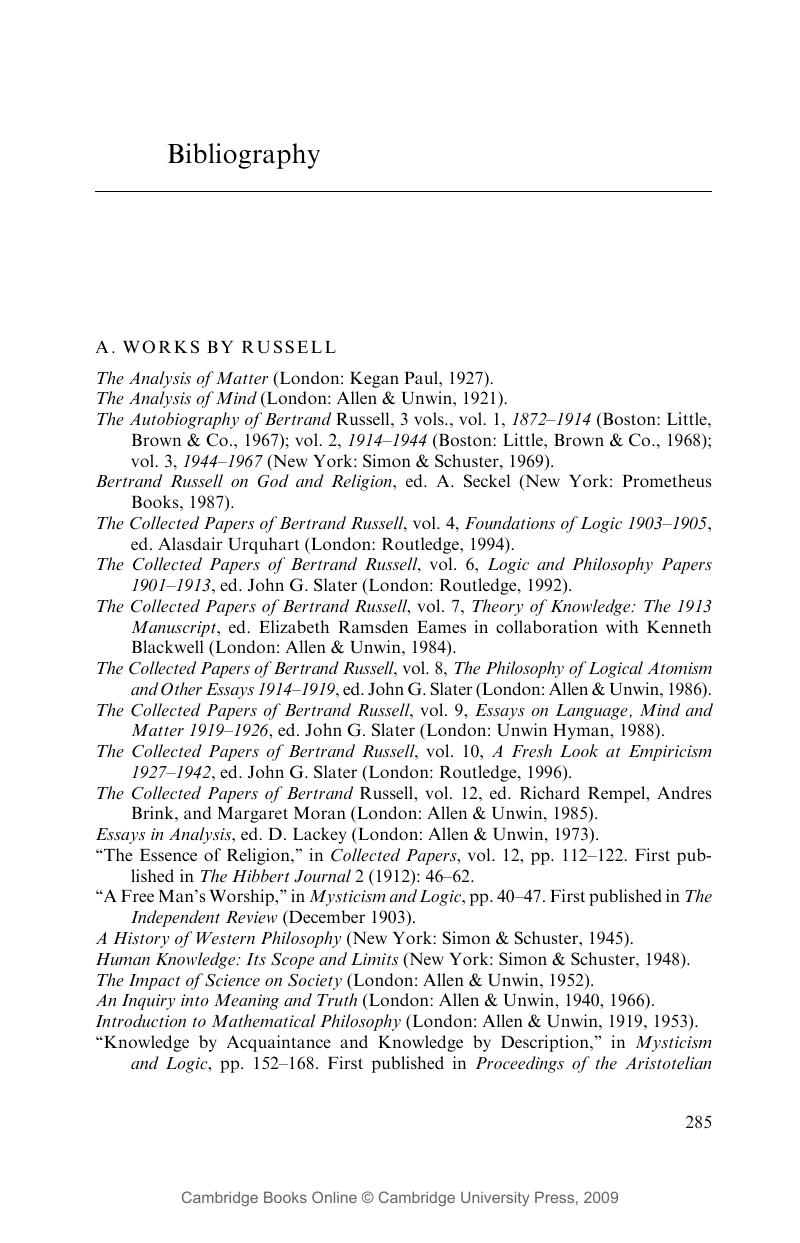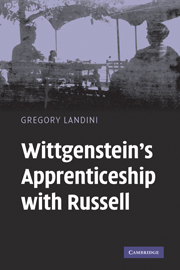Book contents
- Frontmatter
- Contents
- Preface
- 1 Rereading Russell and Wittgenstein
- 2 Logical atomism
- 3 My fundamental idea
- 4 Logic as if tautologous
- 5 Tractarian logicism
- 6 Principia's second edition
- 7 Logic as the essence of philosophy
- Appendix A Exclusive quantifiers
- Appendix B Modality in the Tractatus
- Bibliography
- Index
- References
Bibliography
Published online by Cambridge University Press: 22 September 2009
- Frontmatter
- Contents
- Preface
- 1 Rereading Russell and Wittgenstein
- 2 Logical atomism
- 3 My fundamental idea
- 4 Logic as if tautologous
- 5 Tractarian logicism
- 6 Principia's second edition
- 7 Logic as the essence of philosophy
- Appendix A Exclusive quantifiers
- Appendix B Modality in the Tractatus
- Bibliography
- Index
- References
Summary

- Type
- Chapter
- Information
- Wittgenstein's Apprenticeship with Russell , pp. 285 - 296Publisher: Cambridge University PressPrint publication year: 2007



